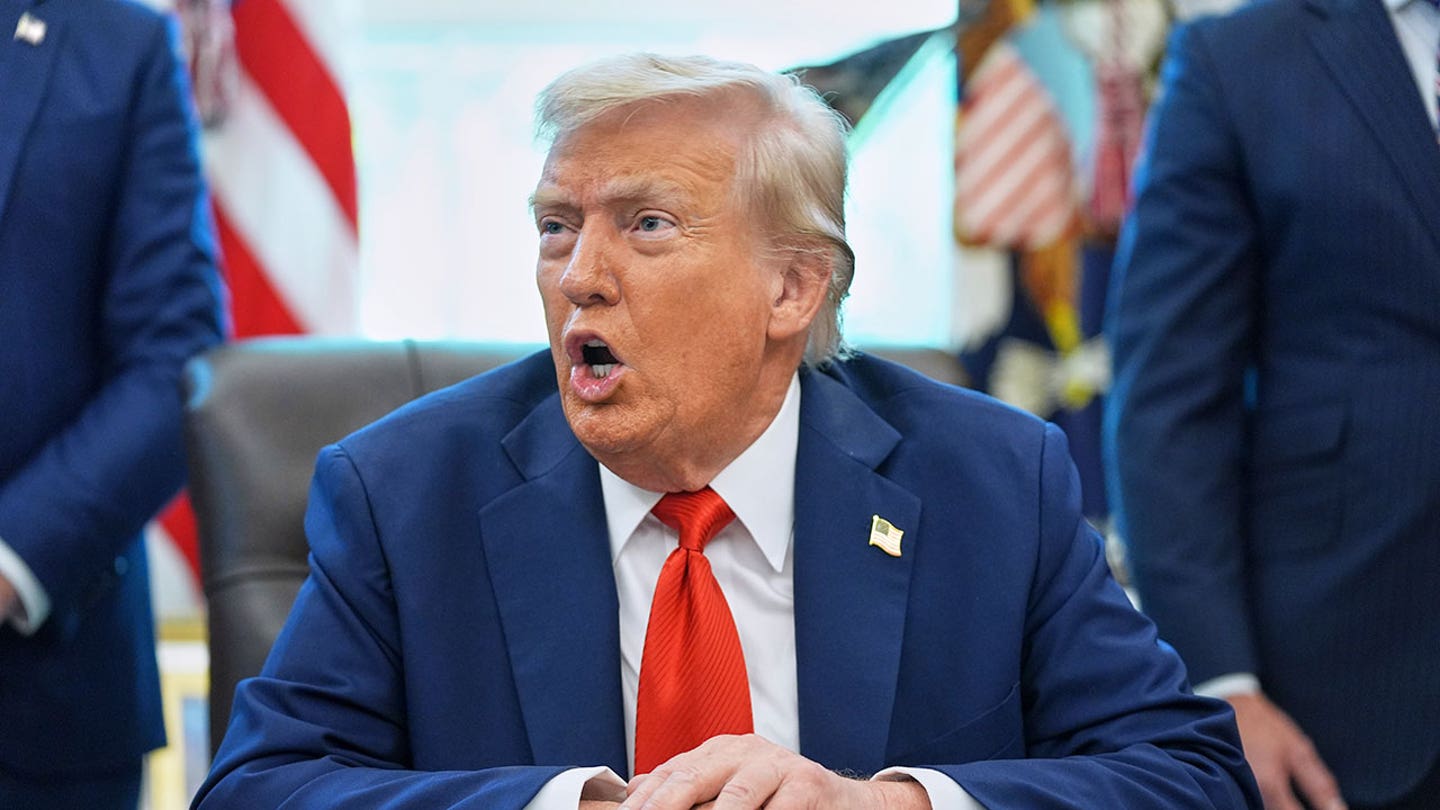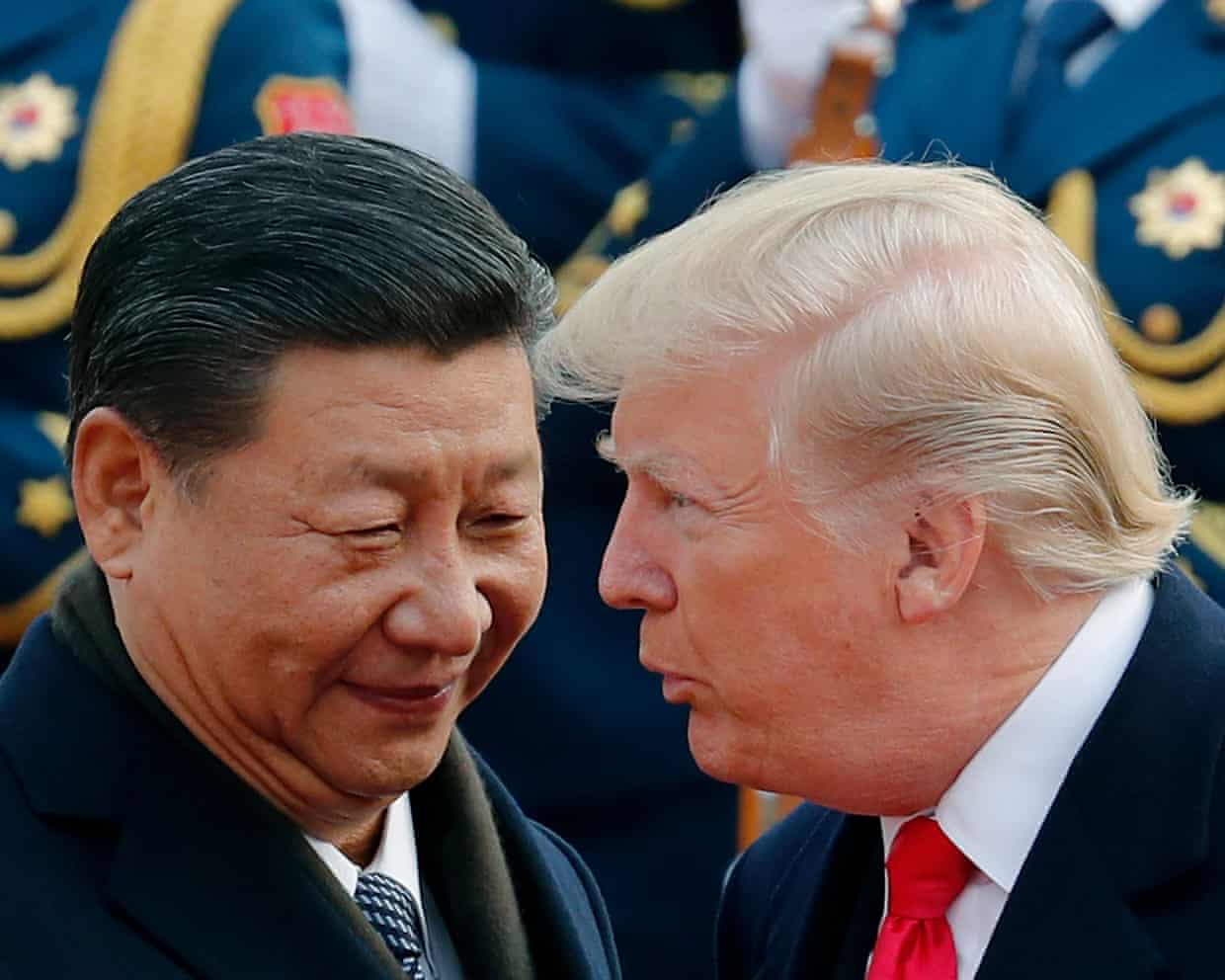
LeBron James did not pen an op-ed for Chinese state media, according to reports
Entities mentioned:
- LeBron James: Influence, Recognition, Unity
- NBA: Competitive spirit, Influence, Self-preservation
- Chinese state media: Control, Influence, Unity
- Donald Trump: Power, Competitive spirit, Indignation
- Xi Jinping: Power, Control, Unity
Article Assessment:
Credibility Score: 75/100
Bias Rating: 55/100 (Center)
Sentiment Score: 40/100
Authoritarianism Risk: 35/100 (Generally Democratic)
Bias Analysis:
The article presents multiple viewpoints and clarifies misinformation, showing a balanced approach. It includes perspectives from various parties involved, maintaining a relatively neutral stance.
Key metric: US-China Relations
Let me tell you something, folks - this story is a GAME-CHANGER in the international arena! We've got LeBron James, the MVP of diplomacy, stepping up to the free-throw line of US-China relations. But wait, there's a twist! It looks like Team China might have been running a play without LeBron's consent, attributing an op-ed to him that he didn't actually write. This is like calling a foul on a clean block - it's RIDICULOUS! Meanwhile, we've got Coach Trump on the sidelines, trash-talking Xi Jinping like it's the fourth quarter of a championship game. The NBA, still recovering from its 2019 fumble, is trying to get back in the game with some preseason matchups in China. I'm telling you right now, this is high-stakes geopolitical basketball, and every move counts in this heated rivalry between Team USA and Team China!

Trump opens door to 600,000 Chinese students amid Beijing trade talks
Entities mentioned:
- Donald Trump: Power, Control, Influence
- China: Power, Competitive spirit, Influence
- Marco Rubio: Security, Wariness, Duty
- Xi Jinping: Power, Influence, Control
- Joe Biden: Legacy, Influence, Duty
Article Assessment:
Credibility Score: 70/100
Bias Rating: 55/100 (Center)
Sentiment Score: 60/100
Authoritarianism Risk: 35/100 (Generally Democratic)
Bias Analysis:
The article presents multiple viewpoints and includes direct quotes, suggesting an attempt at balanced reporting. However, there's a slight lean towards framing Trump's decisions positively, particularly in contrast to the previous administration.
Key metric: US-China Economic Relations
As a social scientist, I analyze that this article highlights a significant shift in the Trump administration's approach to Chinese students in the US, potentially signaling a thaw in US-China relations. The decision to allow 600,000 Chinese students into the US appears to be a strategic move in the context of ongoing trade negotiations. This policy shift could have substantial economic implications, as international students contribute significantly to the US economy. However, it also raises questions about national security concerns previously expressed by administration officials like Marco Rubio. The article suggests that Trump is prioritizing economic benefits over security concerns, which could impact future policy decisions regarding China. The mention of tariffs and trade talks indicates that economic considerations are at the forefront of US-China relations, with educational exchanges being used as a potential bargaining chip.

A China-led global system alongside that of the US is Xi Jinping’s ultimate aim
Entities mentioned:
- Xi Jinping: Power, Influence, Legacy
- China: Power, Influence, Self-preservation
- United States: Power, Control, Influence
- George Magnus: Professional pride, Curiosity, Influence
- Andrew J Sinclair: Professional pride, Wariness, Duty
- Joe Biden: Power, Duty, Influence
Article Assessment:
Credibility Score: 75/100
Bias Rating: 55/100 (Center)
Sentiment Score: 40/100
Authoritarianism Risk: 45/100 (Mixed/Neutral)
Bias Analysis:
The article presents a balanced view, acknowledging both US and Chinese perspectives. However, there's a slight lean towards cautioning about China's ambitions, which could be seen as a centrist or slightly right-leaning stance.
Key metric: Global Economic Influence
As a social scientist, I analyze that this article highlights China's strategic shift from economic growth to building national power and a parallel global system. The author argues that focusing solely on China's economic slowdown underestimates its long-term geopolitical ambitions. China's initiatives like the Belt and Road, CIPS, and 'Made in China 2025' are presented as evidence of its efforts to create an alternative to the US-led global order. This shift has significant implications for the global balance of power and economic influence. The article suggests that even with slower growth, China has the resources and determination to pursue its goal of establishing a China-led global system alongside the US-led one. This perspective challenges the notion of 'Peak China' and implies a continued, if not intensified, great power competition between China and the US in the coming years.

As Trump’s deadline for Russia comes due, White House preps for possible summit with Putin
Entities mentioned:
- Donald Trump: Power, Control, Legacy
- Vladimir Putin: Power, Control, Self-preservation
- Volodymyr Zelensky: Self-preservation, Loyalty, Justice
- Steve Witkoff: Duty, Influence
- Xi Jinping: Power, Influence, Control
Article Assessment:
Credibility Score: 75/100
Bias Rating: 45/100 (Center)
Sentiment Score: 35/100
Authoritarianism Risk: 40/100 (Generally Democratic)
Bias Analysis:
The article presents multiple perspectives and quotes various sources, maintaining a relatively neutral stance. It balances reporting on Trump's actions with reactions from other involved parties, avoiding overtly partisan language.
Key metric: US Foreign Policy Effectiveness
As a social scientist, I analyze that this article highlights the complex interplay between diplomatic efforts and economic sanctions in US foreign policy towards Russia and the Ukraine conflict. Trump's approach oscillates between threatening sanctions and pursuing diplomatic engagement, reflecting a tension between punitive measures and dialogue. The potential summit with Putin, without preconditions involving Ukraine, suggests a prioritization of bilateral US-Russia relations over a multilateral approach to conflict resolution. This strategy risks alienating European allies and Ukraine, potentially undermining the united front against Russian aggression. The article also underscores the interconnectedness of global politics and economics, with India and China's energy imports from Russia complicating the sanctions strategy. The effectiveness of US foreign policy in this context depends on balancing multiple competing interests and maintaining credibility in both diplomatic and economic spheres.

Witkoff meets with Putin as Trump’s sanctions threat looms
Entities mentioned:
- Donald Trump: Power, Control, Determination
- Steve Witkoff: Duty, Influence, Ambition
- Vladimir Putin: Power, Control, Self-preservation
- Volodymyr Zelensky: Self-preservation, Determination, Unity
- Kirill Dmitriev: Duty, Loyalty, Influence
- Dmitry Medvedev: Loyalty, Influence, Power
- Marco Rubio: Professional pride, Influence, Duty
- Scott Bessent: Duty, Influence, Professional pride
- Xi Jinping: Power, Influence, Unity
- Keith Kellogg: Duty, Influence, Professional pride
Article Assessment:
Credibility Score: 75/100
Bias Rating: 45/100 (Center)
Sentiment Score: 35/100
Authoritarianism Risk: 25/100 (Generally Democratic)
Bias Analysis:
The article presents multiple perspectives and cites various sources, including state media and unnamed officials. While it leans slightly towards a US-centric view, it attempts to provide balanced coverage of the complex situation.
Key metric: International Relations Score
As a social scientist, I analyze that this article highlights the complex dynamics of international relations, particularly between the US and Russia. The potential for new sanctions against Russia and the diplomatic efforts to avoid them demonstrate the delicate balance of power and negotiation in global politics. Trump's approach, combining threats of sanctions with diplomatic outreach, reflects a strategy of creating leverage. The involvement of other countries like China and India in Russian energy purchases adds layers of complexity to the situation. This diplomatic dance has significant implications for global stability, economic relations, and the ongoing conflict in Ukraine.